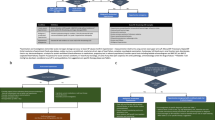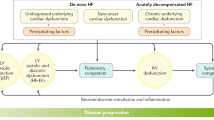Abstract
It has not yet been established whether angiotensin II receptor blockers (ARB), statins, and multiple drugs affect the severity of COVID-19. Therefore, we herein performed an observational study on the effects of 1st- and 2nd-generation ARB, statins, and multiple drugs, on COVID-19 in patients admitted to 15 Japanese medical facilities. The results obtained showed that ARB, statins, and multiple drugs were not associated with the primary outcome (odds ratio: 1.040, 95% confidence interval: 0.688–0.571; 0.696, 0.439–1.103; 1.056, 0.941–1.185, respectively), each component of the primary outcome (in-hospital death, ventilator support, extracorporeal membrane oxygenation support, and admission to the intensive care unit), or the secondary outcomes (oxygen administration, disturbed consciousness, and hypotension, defined as systolic blood pressure ≤90 mmHg). ARB were divided into 1st- and 2nd-generations based on their approval for use (before 2000 and after 2001), with the former consisting of losartan, candesartan, and valsartan, and the latter of telmisartan, olmesartan, irbesartan, and azilsartan. The difference of ARB generation was not associated with the primary outcome (odds ratio with 2nd-generation ARB relative to 1st-generation ARB: 1.257, 95% confidence interval: 0.613–2.574). The odd ratio for a hypotension as one of the secondary outcomes with 2nd-generation ARB was 1.754 (95% confidence interval: 1.745–1.763) relative to 1st-generation ARB. These results suggest that patients taking 2nd-generation ARB may be at a higher risk of hypotension than those taking 1st-generation ARB and also that careful observations are needed. Further studies are continuously needed to support decisions to adjust medications for co-morbidities.

This is a preview of subscription content, access via your institution
Access options
Subscribe to this journal
Receive 12 print issues and online access
$259.00 per year
only $21.58 per issue
Buy this article
- Purchase on Springer Link
- Instant access to full article PDF
Prices may be subject to local taxes which are calculated during checkout
Similar content being viewed by others
References
Pranata R, Permana H, Huang I, Lim MA, Soetedjo NNM, Supriyadi R, et al. The use of renin angiotensin system inhibitor on mortality in patients with coronavirus disease 2019 (COVID-19): A systematic review and meta-analysis. Diabetes Metab Syndr. 2020;14:983–90.
Caldeira D, Alves M, Gouveia E Melo R, Silvério António P, Cunha N, Nunes-Ferreira A, et al. Angiotensin-converting enzyme inhibitors and angiotensin-receptor blockers and the risk of COVID-19 infection or severe disease: Systematic review and meta-analysis. Int J Cardiol Heart Vasc. 2020;31:100627.
Alamer AA, Almulhim AS, Alrashed AA, Abraham I. Mortality, severity, and hospital admission among COVID-19 patients with ACEI/ARB Use: A meta-analysis stratifying countries based on response to the first wave of the pandemic. Healthcare. 2021;9:127.
Patoulias D, Katsimardou A, Stavropoulos K, Imprialos K, Kalogirou MS, Doumas M. Renin-angiotensin system inhibitors and COVID-19: a systematic review and meta-analysis. evidence for significant geographical disparities. Curr Hypertens Rep. 2020;22:90.
Yoshihara F, Ohtsu H, Nakai M, Tsuzuki S, Hayakawa K, Terada M, et al. Renin-angiotensin system blocker and the COVID-19 aggravation in patients with hypertension, diabetes, renal failure, Cerebro-cardiovascular disease, or pulmonary disease: Report by the COVID-19 Registry Japan. J Cardiol. 2022;80:292–97.
Abraham HM, White CM, White WB. The comparative efficacy and safety of the angiotensin receptor blockers in the management of hypertension and other cardiovascular diseases. Drug Saf. 2015;38:33–54.
Kassler-Taub K, Littlejohn T, Elliott W, Ruddy T, Adler E. Comparative efficacy of two angiotensin II receptor antagonists, irbesartan and losartan in mild-to-moderate hypertension. Irbesartan/Losartan Study Investigators. Am J Hypertens. 1998;11:445–53.
White WB, Lacourciere Y, Davidai G. Effects of the angiotensin II receptor blockers telmisartan versus valsartan on the circadian variation of blood pressure: impact on the early morning period. Am J Hypertens. 2004;17:347–53.
Oparil S, Williams D, Chrysant SG, Marbury TC, Neutel J. Comparative efficacy of olmesartan, losartan, valsartan, and irbesartan in the control of essential hypertension. J Clin Hypertension. 2001;3:283–91.
Rakugi H, Enya K, Sugiura K, Ikeda Y. Comparison of the efficacy and safety of azilsartan with that of candesartan cilexetil in Japanese patients with grade I-II essential hypertension: a randomized, double-blind clinical study. Hypertens Res. 2012;35:552–8.
Santosa A, Franzén S, Nåtman J, Wettermark B, Parmryd I, Nyberg F. Protective effects of statins on COVID-19 risk, severity and fatal outcome: a nationwide Swedish cohort study. Sci Rep. 2022;12:12047.
Saad M, Kennedy KF, Louis DW, Imran H, Sherrod CF 4th, Aspry K, et al. Preadmission statin treatment and outcome in patients hospitalized with COVID-19. Am J Cardiol. 2022;177:28–33.
Bouillon K, Baricault B, Semenzato L, Botton J, Bertrand M, Drouin J, et al. Association of statins for primary prevention of cardiovascular diseases with hospitalization for COVID-19: A nationwide matched population-based cohort study. J Am Heart Assoc. 2022;11:e023357.
Kollias A, Kyriakoulis KG, Kyriakoulis IG, Nitsotolis T, Poulakou G, Stergiou GS, et al. Statin use and mortality in COVID-19 patients: Updated systematic review and meta-analysis. Atherosclerosis. 2021;330:114–21.
Diaz-Arocutipa C, Melgar-Talavera B, Alvarado-Yarasca Á, Saravia-Bartra MM, Cazorla P, Belzusarri I, et al. Statins reduce mortality in patients with COVID-19: an updated meta-analysis of 147 824 patients. Int J Infect Dis. 2021;110:374–81.
Grasselli G, Greco M, Zanella A, Albano G, Antonelli M, Bellani G, et al. Risk factors associated with mortality among patients with COVID-19 in intensive care units in Lombardy, Italy. JAMA Intern Med. 2020;180:1345–55.
Hariyanto TI, Kurniawan A. Statin and outcomes of coronavirus disease 2019 (COVID-19): A systematic review, meta-analysis, and meta-regression. Nutr Metab Cardiovasc Dis. 2021;31:1662–70.
Cariou B, Goronflot T, Rimbert A, Boullu S, Le May C, Moulin P, et al. Routine use of statins and increased COVID-19 related mortality in inpatients with type 2 diabetes: Results from the CORONADO study. Diabetes Metab. 2021;47:101202.
Garin N, Koyanagi A, Chatterji S, Tyrovolas S, Olaya B, Leonardi M, et al. Global multimorbidity patterns: a cross-sectional, population-based, multi-country study. J Gerontol A Biol Sci Med Sci. 2016;71:205–14.
Jani BD, Hanlon P, Nicholl BI, McQueenie R, Gallacher KI, Lee D, et al. Relationship between multimorbidity, demographic factors and mortality: findings from the UK Biobank cohort. BMC Med. 2019;17:74.
Guthrie B, Makubate B, Hernandez-Santiago V, Dreischulte T. The rising tide of polypharmacy and drug-drug interactions: population database analysis 1995-2010. BMC Med. 2015;13:74.
Iloanusi S, Mgbere O, Essien EJ. Polypharmacy among COVID-19 patients: A systematic review. J Am Pharm Assoc (2003). 2021;61:e14–e25.
Sirois C, Boiteau V, Chiu Y, Gilca R, Simard M. Exploring the associations between polypharmacy and COVID-19-related hospitalisations and deaths: a population-based cohort study among older adults in Quebec, Canada. BMJ Open. 2022;12:e060295.
McQueenie R, Foster HME, Jani BD, Katikireddi SV, Sattar N, Pell JP, et al. Multimorbidity, polypharmacy, and COVID-19 infection within the UK Biobank cohort. PLoS One. 2020;15:e0238091.
R Core Team. R: A language and environment for statistical computing. R Foundation for Statistical Computing, Vienna, Austria. (2021) URL https://www.R-project.org/.
Bates D, Mächler M, Bolker B, Walker S. Fitting linear mixed-effects models using lme4. J Stat Softw. 2015;67:1–48. https://doi.org/10.18637/jss.v067.i01
Mikami T, Miyashita H, Yamada T, Harrington M, Steinberg D, Dunn A, et al. Risk factors for mortality in patients with COVID-19 in New York City. J Gen Intern Med. 2021;36:17–26.
Pandita A, Gillani FS, Shi Y, Hardesty A, McCarthy M, Aridi J, et al. Predictors of severity and mortality among patients hospitalized with COVID-19 in Rhode Island. PLoS One. 2021;16:e0252411.
Duarte M, Pelorosso F, Nicolosi LN, Salgado MV, Vetulli H, Aquieri A, et al. Telmisartan for treatment of Covid-19 patients: An open multicenter randomized clinical trial. EClinicalMedicine. 2021;37:100962.
Writing Committee for the REMAP-CAP Investigators, Lawler PR, Derde LPG, van de Veerdonk FL, McVerry BJ, Huang DT, et al. Effect of angiotensin-converting enzyme inhibitor and angiotensin receptor blocker initiation on organ support-free days in patients hospitalized with COVID-19: A randomized clinical trial. JAMA 2023;329:1183–96.
Ikari Y, Matsue Y, Torii S, Hasegawa M, Aihara K, Kuroda S, et al. Association between statin use prior to admission and lower Coronavirus disease 2019 (COVID-19) severity in patients with cardiovascular disease or risk factors. Circ J. 2021;85:939–43.
Higuchi T, Nishida T, Iwahashi H, Morimura O, Otani Y, Okauchi Y, et al. Early clinical factors predicting the development of critical disease in Japanese patients with COVID-19: A single-center, retrospective, observational study. J Med Virol. 2021;93:2141–48.
INSPIRATION-S Investigators. Atorvastatin versus placebo in patients with covid-19 in intensive care: randomized controlled trial. BMJ. 2022;376:e068407.
Matli K, Al Kotob A, Jamaleddine W, Al Osta S, Salameh P, Tabbikha R, et al. Managing endothelial dysfunction in COVID-19 with statins, beta blockers, nicorandil, and oral supplements: A pilot, double-blind, placebo-controlled, randomized clinical trial. Clin Transl Sci. 2022;15:2323–30.
Cianchetti S, Del Fiorentino A, Colognato R, Di Stefano R, Franzoni F, Pedrinelli R. Anti-inflammatory and anti-oxidant properties of telmisartan in cultured human umbilical vein endothelial cells. Atherosclerosis. 2008;198:22–8.
Takemoto M, Liao JK. Pleiotropic effects of 3-hydroxy-3-methylglutaryl coenzyme a reductase inhibitors. Arterioscler Thromb Vasc Biol. 2001;21:1712–9.
Zhang H, Penninger JM, Li Y, Zhong N, Slutsky AS. Angiotensin-converting enzyme 2 (ACE2) as a SARS-CoV-2 receptor: molecular mechanisms and potential therapeutic target. Intensive Care Med. 2020;46:586–90.
McKeigue PM, Kennedy S, Weir A, Bishop J, McGurnaghan SJ, McAllister D, et al. Relation of severe COVID-19 to polypharmacy and prescribing of psychotropic drugs: the REACT-SCOT case-control study. BMC Med. 2021;19:51.
Alves M, Fernandes MA, Bahat G, Benetos A, Clemente H, Grodzicki T, et al. Protecting older patients with cardiovascular diseases from COVID-19 complications using current medications. Eur Geriatr Med. 2021;12:725–39.
Bose S, Kelly L, Shahn Z, Novack L, Banner-Goodspeed V, Subramaniam B. Sedative polypharmacy mediates the effect of mechanical ventilation on delirium in critically ill COVID-19 patients: A retrospective cohort study. Acta Anaesthesiol Scand. 2022;66:1099–106.
Coelho de Amorim JS, Ornellas G, Lloyd-Sherlock P, Pereira DS, da Silva A, Duim E, et al. Discontinuation of health interventions among Brazilian older adults during the Covid-19 pandemic: REMOBILIZE Study. Int J Health Serv. 2022;52:330–40.
Acknowledgements
We thank Chie Nishiguchi, Ryoko Kotani for their excellent assistance. We thank all the participating facilities for their care towards patients with COVID-19 and cooperation during data entry.
Funding
The present study was funded by the Health and Labour Sciences Research Grant “Research for risk assessment and implementation of crisis management functions for emerging and re-emerging infectious diseases” provided by the Japanese Ministry of Health, Labour, and Welfare (Grant number 19HA1003) and by the Japan Agency for Medical Research and Development (Grant number 20ek0210106h0003).
Author information
Authors and Affiliations
Corresponding author
Ethics declarations
Conflict of interest
FY reports research funding from AstraZeneca and Ono. KT reports honoraria from Novartis, AstraZeneca, Ono, Daiichi-Sankyo, Takeda, Otsuka, Bayer and Kyowa-Kirin, and research funding from AstraZeneca, Otsuka, Kaneka, and scholarship or donation from Bayer, Kyowa-Kirin, Otsuka, Takeda and Daiichi-Sankyo. SY reports honoraria from Daiichi Sankyo Co. Ltd. and Bayer Yakuhin, Ltd. and research funding from NEC Solution Innovators, Ltd., Daiichi Sankyo Co. Ltd. and Bayer Yakuhin, Ltd. and scholarship or donation from Abbott Medical Japan LLC, Amicus Therapeutics Co. Ltd., Otsuka Pharmaceutical Co. Ltd., Kowa Company Ltd., Sumitomo Dainippon Pharma Co. Ltd., Roche Diagnostics K.K. and endowed departments by commercial entities from Abbott Medical Japan LLC, Medtronic Japan Co. Ltd., Tesco Co. Ltd., Terumo Co., Nihon Kohden Co., Japan Lifeline Co. Ltd., Sound Wave Innovation CO. LTD., ONO PHARMACEUTICAL CO. LTD., SHIONOGI & CO. LTD., ZEON MEDICAL INC., Nippon Shinyaku Co. Ltd., Nippon Boehringer Ingelheim Co. Ltd., Otsuka Pharmaceutical Co. Ltd., Kowa Company, Ltd., Takeda Pharmaceutical Co. Ltd., Mochida Pharmaceutical Co. Ltd., BIOTRONIK JAPAN Co. Ltd., KANEKA MEDICAL PRODUCTS, FUKUDA DENSHI CO. LTD., and Philips Japan, Ltd. HO reports honoraria from Bayer Yakuhin. Other authors report no competing interests to disclose.
Ethics
The present study was approved by the National Cerebral and Cardiovascular Center Ethics Review (R20041). All procedures were performed in accordance with the 1964 Declaration of Helsinki and its later amendments or comparable ethical standards.
Additional information
Publisher’s note Springer Nature remains neutral with regard to jurisdictional claims in published maps and institutional affiliations.
Supplementary information
Rights and permissions
Springer Nature or its licensor (e.g. a society or other partner) holds exclusive rights to this article under a publishing agreement with the author(s) or other rightsholder(s); author self-archiving of the accepted manuscript version of this article is solely governed by the terms of such publishing agreement and applicable law.
About this article
Cite this article
Yoshihara, F., Matsuzawa, Y., Nakatsuka, K. et al. Relationship between 2nd-generation angiotensin receptor blockers and the risk of hypotension in COVID-19 patients admitted to hospital. Hypertens Res (2024). https://doi.org/10.1038/s41440-024-01682-y
Received:
Revised:
Accepted:
Published:
DOI: https://doi.org/10.1038/s41440-024-01682-y



